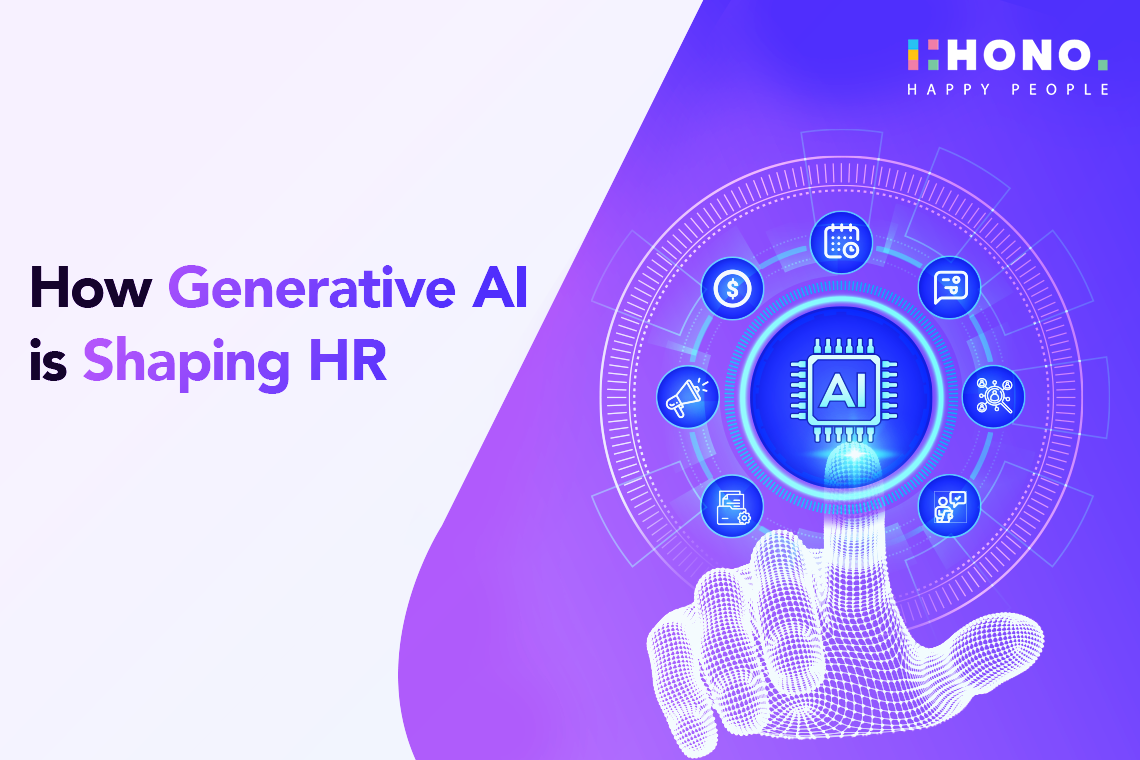Candidate ghosting refers to the phenomenon where job applicants suddenly stop communication with potential employers during the recruitment process, often without any warning or explanation. This can occur at various stages, including after initial contact, interviews, or even after a verbal job offer has been extended. The impact of candidate ghosting on businesses is significant; it disrupts the hiring timeline, wastes resources allocated to interviewing and vetting candidates, and prolongs the period a position remains unfilled, potentially stalling critical projects and affecting team dynamics.
Candidate Ghosting: Why It Happens and How AI-Powered Recruitment Tools Can Help
6 mins

Candidate ghosting refers to the phenomenon where job applicants suddenly stop communication with potential employers during the recruitment process, often without any warning or explanation. This can occur at various stages, including after initial contact, interviews, or even after a verbal job offer has been extended. The impact of candidate ghosting on businesses is significant; it disrupts the hiring timeline, wastes resources allocated to interviewing and vetting candidates, and prolongs the period a position remains unfilled, potentially stalling critical projects and affecting team dynamics.
According to Gartner, approximately 19% of candidates admitted to ghosting an employer in 2021, reflecting a broader trend influenced by the competitive job market and evolving candidate expectations. This behavior not only strains HR departments but also necessitates a reassessment of recruitment strategies. The uncertainty and administrative overhead caused by ghosting can lead to increased operational costs and reduced overall workplace efficiency, prompting companies to seek innovative solutions to mitigate these challenges. Let’s explore more about this in this blog.
What is Candidate Ghosting?
The phenomenon of candidate ghosting, where applicants disappear without communication after engaging with recruitment processes, can be attributed to various factors. One prevalent reason is the presence of multiple job offers. In a competitive job market, candidates often entertain several opportunities simultaneously. When one employer extends an offer or creates a more appealing work environment, candidates may cease communication with other potential employers without formal notice.
Another significant factor is long, drawn-out interview processes. When companies take extended periods to make decisions, candidates may feel disengaged and less valued, prompting them to abandon the process quietly. This type of ghosting behavior is particularly common in scenarios where candidates undergo multiple interviews but receive little to no feedback or updates from the hiring side.
Additionally, a lack of transparency or insufficient communication can lead to candidates ghosting employers. If candidates feel that they are not being kept in the loop about where they stand in the hiring process or what to expect next, their trust in the potential employer diminishes. This is often exacerbated when companies do not provide clear timelines or fail to update candidates about delays in the decision-making process.
Insights from recent surveys underline these issues, highlighting that candidates often ghost recruiters when they perceive better prospects elsewhere or experience frustration with the hiring process. For instance, a survey might reveal that a significant percentage of candidates who ghosted did so after experiencing protracted silence from the employer post-interview, underscoring the need for companies to maintain consistent and transparent communication to mitigate such behaviors.
The Role of AI in Reducing Candidate Ghosting
The advent of AI-powered recruitment tools, such as HONO, marks a significant stride toward addressing the issue of candidate ghosting. These innovative technologies are reshaping how companies approach the hiring process, making it not only faster but also more efficient. By automating administrative tasks and streamlining candidate evaluations, AI tools significantly reduce the time between initial contact and final hiring decisions. This acceleration is crucial in retaining candidate interest and commitment, thereby reducing the likelihood of candidates ghosting recruiters.
AI tools enhance the recruitment process by enabling more precise and faster matching of candidate profiles to job requirements. This capability ensures that recruiters can quickly identify and engage with the most suitable candidates, minimizing the duration candidates spend in the recruitment pipeline. Moreover, these tools can schedule and manage interviews, send automated updates, and provide feedback to candidates, all of which contribute to a more dynamic and engaging candidate experience.
Furthermore, one of the most impactful features of AI in recruitment is its ability to improve communication with candidates. Through automated messaging features, AI tools can keep candidates informed at every step of the hiring process, from acknowledging receipt of applications to providing timely updates about their progress. This level of transparency addresses one of the key reasons behind candidate ghosting—lack of communication—and helps build trust between the candidate and the company. By ensuring that candidates feel valued and informed, AI-powered tools significantly diminish the chances of candidates ghosting employees, even after multiple interviews.
Implementation Tips
Integrating AI recruitment tools into existing hiring processes requires thoughtful planning and execution. To ensure a smooth transition, companies should start by identifying specific areas within their recruitment process that are most susceptible to inefficiencies such as delays in response times or lack of communication—factors that contribute to candidate ghosting. Implementing AI tools that can automate these aspects, such as scheduling interviews or sending follow-up emails, can significantly enhance the process.
When choosing the right AI tool, companies should consider their size and the industry they operate in. Larger companies or those in highly competitive fields might benefit from more robust solutions that offer extensive features like advanced analytics and integration with existing HR systems. Smaller businesses might prioritize more user-friendly, cost-effective solutions that address key needs like automated candidate screening and communication. It's also essential for companies to choose tools that are scalable and can grow with their business needs.
The potential of AI in reducing candidate ghosting is substantial. By automating and streamlining various stages of the recruitment process, AI tools not only expedite hiring but also enhance candidate engagement through consistent communication and feedback. This level of interaction helps mitigate the risk of candidates ghosting recruiters, especially after multiple interviews or when selected for a job. The capability of AI to maintain engagement and transparency throughout the hiring process can transform a previously opaque experience into one that is clear and collaborative.
HR professionals are encouraged to consider these AI-powered HR tools as integral components of their recruitment strategy. By adopting AI, companies not only refine their recruitment processes but also position themselves as forward-thinking employers who value efficiency and candidate experience, thereby attracting and retaining top talent more effectively. This strategic integration of technology is not just about keeping up with trends but also about creating a more dynamic and responsive hiring environment that aligns with modern workforce expectations.
Request a Demo Now!
Frequently Asked Questions
HCM software automates and streamlines HR processes, making them more efficient and accurate. It provides a centralized platform for managing employee data, tracking performance, facilitating talent acquisition, and improving employee engagement. By leveraging HR management software, organizations can save time, reduce administrative burdens, make data-driven decisions, and enhance overall HR operations.
AI-driven HONO is considered the best HR software due to its innovative use of Artificial Intelligence (AI) to streamline and enhance HR processes. Here’s why. It provides actionable, data-driven insights that enable HR professionals to make informed decisions, improving overall organizational effectiveness and strategic planning. HONO automates repetitive and time-consuming HR tasks, allowing HR personnel to focus on more strategic activities, thereby increasing overall productivity and efficiency. HONO is scalable and adaptable, catering to the evolving needs of organizations, regardless of their size or industry.
Choosing the right Employee Management Software involves considering several factors to ensure it meets the organization’s needs. Here’s a guide to help you choose. Clearly define what you need the HRMS software to achieve, considering aspects like attendance tracking, performance management, and employee development. Determine a budget considering both the initial cost and ongoing expenses like subscription fees, updates, and support. Ensure the HCM software integrates seamlessly with other systems and tools used in your organization, such as payroll and attendance systems. Opt for cloud HCM with an intuitive and user-friendly interface to ensure ease of use for both HR personnel and employees. Assess the human capital management solution's security features and its ability to comply with relevant laws and regulations to protect sensitive employee data. By considering the above factors and conducting thorough research, you can select an Employee Management Software that aligns with your organizational goals and enhances overall workforce management.
.png?width=70&height=70&name=Team%20HONO%20logo-01%20(1).png)
Team HONO









.jpg)
